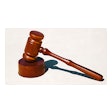Copyright 2016 The Deseret News Publishing Co.
Deseret Morning News (Salt Lake City)
SALT LAKE CITY - University of Utah basketball coach Larry Krystkowiak has yet to pay the $80,000 cancellation fee he vowed to personally cover for breaking a contract to play BYU this year, according to a legislative audit released Tuesday.
Instead, the university paid the fee and the coach will repay the money in four installments over four years. Krystkowiak made the first $20,000 payment from his Kyrstko Foundation, but auditors say they were unable to independently confirm if he used personal or donated funds.
University officials told the Office of the Legislative Auditor General that Krystkowiak assured them the money came from him without contributions from donors, the reports says.
The finding was part of an audit of U. athletics that state legislative leaders requested after Krystkowiak's controversial decision in January to not play BYU in 2016.
Krystkowiak said in February the schools needed a "cooling-off period" for rivalry emotions escalating toward "potential for serious injury." The game would have been played next month.
The decision triggered a host of questions among lawmakers, including what level of oversight the Legislature should have with college sports and how universities balance athletics and academics.
Legislative auditors looked at the athletics department's budget management, coaches' pay, athletic director bonuses and team performances relative to goals and expectations.
"We are always striving to improve and find ways to be more competitive. This audit confirms we are doing most things well, but it also gives us the opportunity to learn, grow and implement change, which will allow us to compete on an even higher level," said U. Athletic Director Chris Hill.
Rep. Brian King, D-Salt Lake City, said there was a "hue and cry" that the audit was seen as retribution for canceling the BYU game, but the U. acted professionally through the process. In the end, he said the findings would benefit the university and the state.
Sports at the U. generated $63.9 million last year, with the football and men's basketball programs accounting for 80 percent of the revenue, with $42.3 million and $8.4 million, respectively. The department employs 160 coaches and administrative staff, and supports 400 athletes in 18 sports.
The audit found that the U.'s athletics expenses have been consistently the lowest among Pac-12 schools, largely due to having the least amount of money coming in. The athletics department receives revenue from a variety of sources, including tickets sales, merchandise, TV deals and the university itself.
Auditors cautioned the U. against spending more than it has to keep pace with other universities in the competitive world of college sports, noting it has a $4.7 million deficit due to a decision to go in the red when it entered the Pac-12 Conference in 2011. Colorado, which joined the Pac-12 at the same time as Utah, has a $20 million deficit, according to the audit.
"As a general trend, there has been significant pressure to spend increasing amounts on budget items like coaching salaries, athletics facilities, scholarships, food and student- athletes' cost of attendance," auditors wrote.
U. President David Pershing told the Legislative Audit Subcommittee that the university can't afford to put as much money into sports as other schools and must do more with less. He said it would never use academic funds to support cost overruns in the athletics department.
Pershing said the U. incurred short-term debt to compete in the Pac-12 before receiving a full share of conference revenues. The spending included building a reserve fund, which at $6.4 million is among the highest in the conference.
Hill told the committee the program wants to have reserves in the event of something catastrophic, and losing football games, for example, could be catastrophic to the bottom line.
Auditors found that many coaches received significant pay raises regardless of whether their teams met expectations set by the athletics department the past five years. For example, baseball coaches received a 112 percent increase, while football and basketball coaches got 89 percent and 84 percent, respectively, from 2011 to 2015.
While many teams have performed well, only the gymnastics and men's and women's ski teams achieved department goals during that time, according to the report. Auditors suggested tying coaches' raises to on-field results and allowing them to participate in setting goals for their teams.
The audit notes that the baseball team won the Pac-12 championship this year and men's basketball, women's volleyball and softball have improved. Others, such as women's soccer and men's tennis, get better one year and fall back the next. Women's basketball, track and tennis have struggled, the audit says.
Coaches are paid according to how their teams do in the conference over a period of time, though sometimes the U. has to do a preemptive strike to keep a coach from being hired away, even in lower profile sports, Hill said.
Pershing said the university has been "very pleased" with its coaches.
"They have risen to the challenge (both athletically and academically) and are performing at the higher level required in the Pac-12," he wrote in the response.
The U. has one of the highest academic progress rates in the conference, which factors in points for athletes staying in school and being academically eligible to play.
Lawmakers commended the university for the academic success among its athletes.
Auditors found that Hill can earn bonuses based on the performances of the high-profile football, men's and women's basketball, and gymnastics teams, but not on the less visible sports.
Providing incentives for non-moneymaking sports could improve on-field performance, auditors said, adding that nine schools in the Pac-12 offer bonuses to athletic directors based on the success of all teams.
The audit also found the athletics department hasn't kept tabs on nearly $2 million worth of equipment such as laptops, video cameras and big screen TVs. They also discovered the department has lost 264 keys, including 15 master keys, to athletics facilities over the years. Auditors say that makes items susceptible to theft.
House Speaker Greg Hughes, R-Draper, saw that as a particular problem, especially in a sports environment and staying in compliance with NCAA rules.
"Your student-athletes are under a microscope that is far greater than any of your other departments," he said.
Email: [email protected]
Twitter: dennisromboy
Read More of Today's AB Headlines
Subscribe to Our Daily E-Newsletter
Terms and Conditions Privacy Policy































